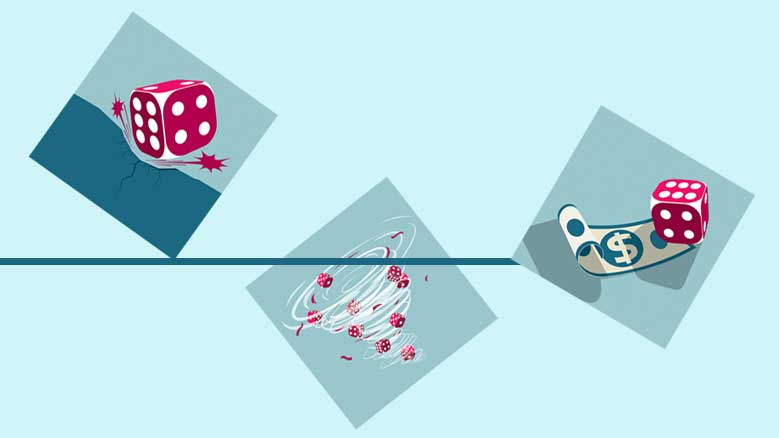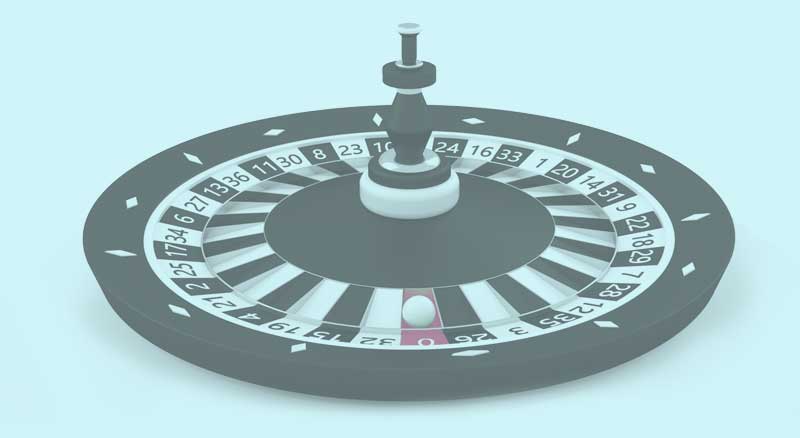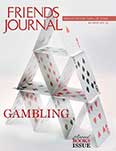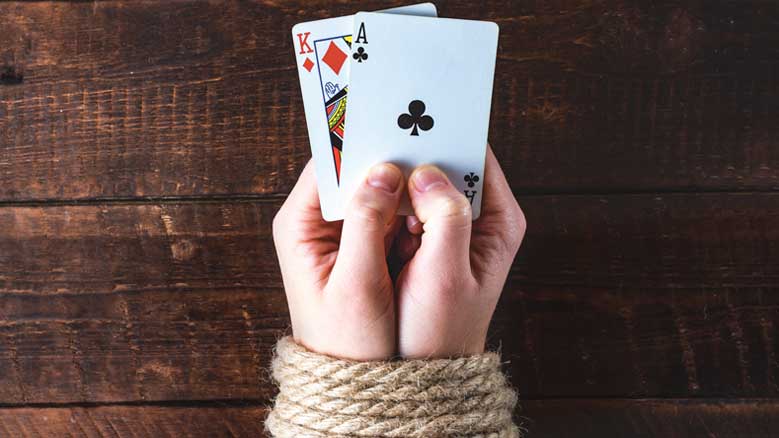
Since a gambling addiction can destroy one’s life, Quaker testimonies recommend a carefully considered relationship to gambling.
The definition of gambling is a loose one, referring generally to a set of games determined by chance, ranging in skill from the mindless chance of slot machines to more informed decisions of stock market investing. Regardless of how much skill is involved, though, all forms of gambling go against Quaker principles in practice if not theory. Gamblers wrestle with perceived material goals: how one could or should feel, as opposed to what one desires. Investors take risks to win more wealth by investing greater amounts of money. Since a gambling addiction can destroy one’s life, Quaker testimonies recommend a carefully considered relationship to gambling.
The greatest threat from games of chance, raffles, and even the stock market is that they advance materialism. Many participants will desire greater winnings, valuing earthly goods over spiritual gain. This greed violates the Quaker testimony of simplicity. One gambles to win material goods; the more one plays, the deeper their desire becomes to gain material wealth at the expense of a meaningful relationship with Spirit. While gambling, people are reminded not of what they do or don’t have but of what they could have. The prize that they hope to win—money or free items—seems attainable. The fact that gamblers feel as if they are able to win makes them play repeatedly. However, the odds are stacked against them, so they will most likely not win the prize. Casinos themselves are filled with slot machines, conspicuous wealth, alcohol, and sharply dressed individuals, all looking to take someone else’s money. Casinos are indicative of materialistic life, and alongside chance, serve as a lure for materialism.
Gambling also works against integrity and equality because it incentivizes cheating. While gambling appears to be democratic with equal odds, gamblers often use weighted dice, hidden cameras to document opponents’ cards, or other devices to twist games of chance in their favor, thereby precluding the possibility of equality. Friends often define integrity as treating others with respect and honesty, but cheaters do not treat others with honesty.
Moreover, cheating also violates the Quaker testimonies of equality and community. Gamblers value winning prizes over treating their neighbors well. Gambling does little to serve the material or spiritual good of the community. Instead of using financial gain carefully, gamblers are likely to spend winnings on themselves, rather than sharing with their neighbors or contributing to the common good. Even the lottery, which is meant to be properly taxed and distributed to government programs like public education, has been shown to fall short of its goals. When people do win a lottery, their initial thoughts are rarely to give winnings back to the government or public good. Lottery winners are notoriously unhappy, so this good seems to also hurt those who win.

Regardless of its scale and scope, gambling goes against many Quaker testimonies.
Gambling can potentially be a life-destroying addiction and must be taken seriously. People addicted to gambling can throw their lives away by losing their possessions and harming their own interests. The University of Buffalo’s Research Institute on Addictions estimates that up to 750,000 people from ages 14 to 21 have a gambling addiction. This addiction is also linked with developing depression, anxiety, and substance abuse. The Nevada Council on Problem Gambling estimates that 50 percent of those affected by gambling problems commit crimes to support their addiction. This staggering statistic reveals how gambling addiction can lead to serious problems. Whether these crimes are violent, they still violate the Quaker emphasis on peace and instead sow discord and danger in communities.
Although gambling violates the majority of the Quaker testimonies, many argue that all gambling is not the same, since some forms require more skill than others. On the low end of the scale, winning at the slot machine is determined solely by chance—one simply pulls a lever to spin. Card games like blackjack and poker require skill but are largely determined by luck because the cards in the dealer’s hand influence the outcome. The stock market takes more skill, but the knowledge behind investment strategies is never complete unless traders receive insider information. Even having researched specific stocks, investors still play a game of chance on a high-risk, high-reward scale. Participating in raffles and games of chance for fun is still gambling, albeit with low-risk, high-reward outcomes. Still, these activities represent material gain without hard work.
Regardless of its scale and scope, gambling goes against many Quaker testimonies. Although it seems unlikely all forms of gambling will be eliminated, we should be careful about indulging even seemingly innocuous forms and consider how they affect our spiritual well-being.






Gambling is not approved for all reasons in article and the young man mentioned as proactive is to be commended for witnessing to his beliefs. I am however not perfect. I bet $5 every year on the Kentucky Derby. I have bought raffles several times but do not now. I have thrown away $10 whlle on busness trips a few times. I am 90 years old and felt guilty each time…but considering my values to Quaker beliefs I am not ashamed of my belief that I have strived to be honest, have integrity. And my life has been to enbrace George Fox and his beliefs. Love one another.Attending Quaker Meeting and finding other times that The Light, Spirit, that of God is in everyone has been a joyous grateful life. God bless us all. Joan Kindler kindlerant@aol.com
It is not up to Michael Song, or any person, to define Quaker values for anyone but himself. He seems to assume that he somehow has the power to define how Quaker testimonies should apply to every Quaker’s life. I find this attitude disturbing.
Thank you for this article. Gambling ruins lives and I agree if not for any other reason, this definitely goes against Quaker testimony and values.